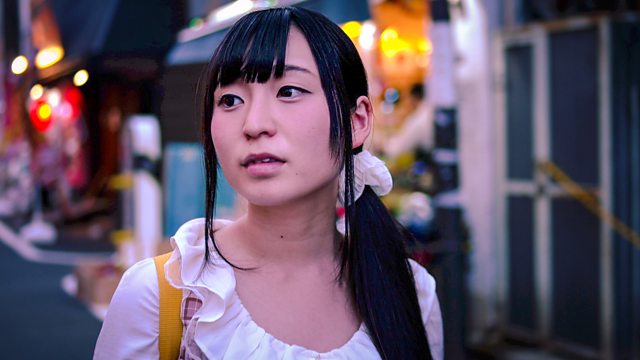
Tokyo Girls
A Storyville documentary: following an aspiring Japanese pop singer and her fans, the film explores a cultural phenomenon driven by an obsession with young female sexuality.
Girl bands and pop music permeate Japanese life. This film gets to the heart of a cultural phenomenon driven by an obsession with young female sexuality and internet popularity.
Meet Rio - a bona fide Tokyo idol who takes us on her journey toward fame. Now meet her 'brothers' - a group of adult male superfans who devote their lives to following her, in the virtual world and in real life. Once considered to be on the fringes of society, the brothers who gave up salaried jobs to pursue an interest in female idol culture have since become mainstream via the internet, illuminating the growing disconnect between men and women in hypermodern societies.
Tokyo Girls explores the Japanese pop music industry and its focus on traditional beauty ideals, confronting the nature of gender power dynamics at work. As the female idols become younger and younger, the film looks at the veil of internet fame and the new terms of engagement that are playing out in real life around the globe.
Last on
More episodes
Previous
Next
![]()
���˿��� Four's Japan season
Three weeks of programmes on the art and culture of Japan.
Director Kyoko Miyake answers the Storyville Q&A

Growing up in Japan as a girl was a confusing experience for me. I was a very clumsy girl and whenever I wasn’t acting cute, it was taken as a sign of defiance. I left Japan at 26, and began to understand things didn’t have to be that way for me. So I decided not to return.
A few years ago, when I became aware of the phenomenon called idols during my visits back home, it felt like it had something to do with what made me uncomfortable about being a woman in Japan and I wanted to explore it.
How long did it take to get the film off the ground?
About one year
What were you most surprised to learn in the course of production?
Initially, our idea was to follow a few aspiring idol singers. I also thought that I could sympathise and identify more easily with the girls as I was once a girl in Japan. And I didn’t want to have much to do with the fans even though they are the same generation. I had all sorts of preconceptions about middle-aged men who fantasize about teenage girls.
The film ended up becoming as much about their fans - the men who have become increasingly disconnected from women of their age and shy away from real relationships. Making this film really forced me to look at our generation and what we have gone through in post-bubble Japan. While I don't condone their behavior, I now have a deeper understanding for why they act or think the way they do.
What was the most difficult part of the story to tell?
To find the balance between the inside and outside perspectives. We wanted to have a critical look without judging negatively from a western point of view. It was surprising for us how quickly our initial sense of creepiness went away. After a few concerts, a sense of normalcy kicked in. Idol scenes are not seedy and we never saw a drunken person even though the venues often sold alcohol. It’s actually very orderly and there is an unwritten rule of conduct. So for us, going back and forth between Japan and UK/Canada, was in fact, apart from logistical nightmares, very helpful. The physical distance helped us to restore our psychological distance and to keep remembering how uncomfortable we felt at the beginning while constantly asking ourselves how much we can accept while retaining our critical perspective? This balancing act was perhaps the trickiest part.
What have been the differences in reception to the film in countries it has now travelled to?
I haven’t noticed any differences among the countries. What has been very encouraging for me was to meet many young female audience who came to tell me after the screenings that they saw parallels between the film and their own experience, and really appreciated the story.
Did you have a social media strategy?
We post updates on Facebook and Twitter but we didn’t really have a strategy.
Has there been a positive response on social media to the film?
So far, it’s been mostly positive.
Any updates on contributors since filming finished?
Rio is still performing. Koji made some bad investment in his new business and filed for bankruptcy, but he’s still going to all of Rio’s concerts.
Best recent read?
‘Gender and Nation-State’ by Yu Sato and Minori Kitahara
Best recent film?
O.J.: Made in America
Credit
| Role | Contributor |
|---|---|
| Director | Kyoko Miyake |
Broadcast
- Tue 27 Jun 2017 22:00
Featured in...
![]()
Japan Season
���˿��� Four explores the art, culture and history of Japan.



